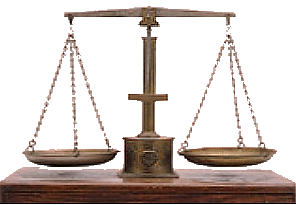|
THE COURT'S ROLE Our courts, established to uphold the laws in the
state of Connecticut, maintain the order in our society by performing the following:
- if accused of breaking laws, determining the innocence or guilt of persons
- resolving disputes that involve personal or civil rights
- deciding what the state's law will be if the situation is not covered in existing laws, or interpreting constitutional provisions of laws enacted by the legislature. The decision of the court then becomes the
precedent, to be applied in similar situations unless later overruled or modified by the Supreme Court or General Assembly
- deciding whether a law violates either the Constitution of the State of Connecticut or the United States.
|


